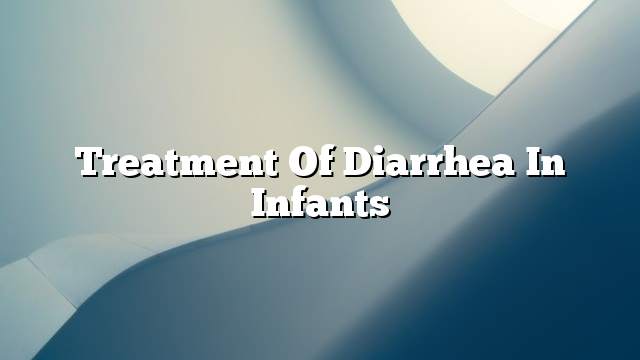Diarrhea in infants
There are many problems that babies face in their first months of life, the most important of which are gastrointestinal disorders such as diarrhea. This means that the child’s stools are more foul-smelling than the usual during the day due to a stomach infection or a biological change in the baby’s body. , And the most dangerous types of diarrhea is accompanied by vomiting and high temperature.
When infants are exposed to diarrhea, quick solutions must be found so that they do not lose fluids and salts from their bodies that cause them to have more serious health problems than diarrhea.
Symptoms of bacterial diarrhea
- Excessive tiredness appears on the baby with continuous crying due to pain.
- Refuse to breastfeed heavily, so it becomes less.
- Dry mouth, and a decrease in the number of urination.
Reasons
- Eat food or milk contaminated with a variety of viruses, bacteria or parasites.
- The beginning of the emergence of teeth.
- The delivery of artificial milk to the infant; there are types that lead to diarrhea because of its inappropriate composition of the infant.
- Sensitivity of some types of food.
- Eat lots of medicines, especially antibiotics.
- Infection with diseases such as influenza, middle ear infections, and other non-intestinal diseases.
Methods of prevention
- Keep away from giving any type of food before reaching the sixth month.
- Wash your hands well before feeding the baby, as well as the mother should wash her breasts well before the process of breastfeeding.
- Treatment of the child in case of infection with one of the types of bacterial infections.
- Avoid feeding too much baby candy.
- Sterilize the dummy approximately every hour, as well as sterilize the pots and cups for the baby, and soak them with boiled water for five minutes.
- Give the child an anti-salmonella vaccine that is a cause of diarrhea and typhoid fever.
Methods of treatment
- Increase the number of breast-feeding times, as natural milk increases the child’s immunity and provides the body with fluids.
- If the baby is dependent on formula milk, milk types that do not contain lactose should be adopted.
- Give the baby a solution for the amount of fluids determined by the doctor, and must be given more water.
- If the baby is older than six months, it is best to give plenty of natural juices, which are equipped with the house as it compensates for the loss of fluids and vitamins.
- Check with your doctor if you have diarrhea for more than three days, because your baby may need intravenous fluid compensation.
